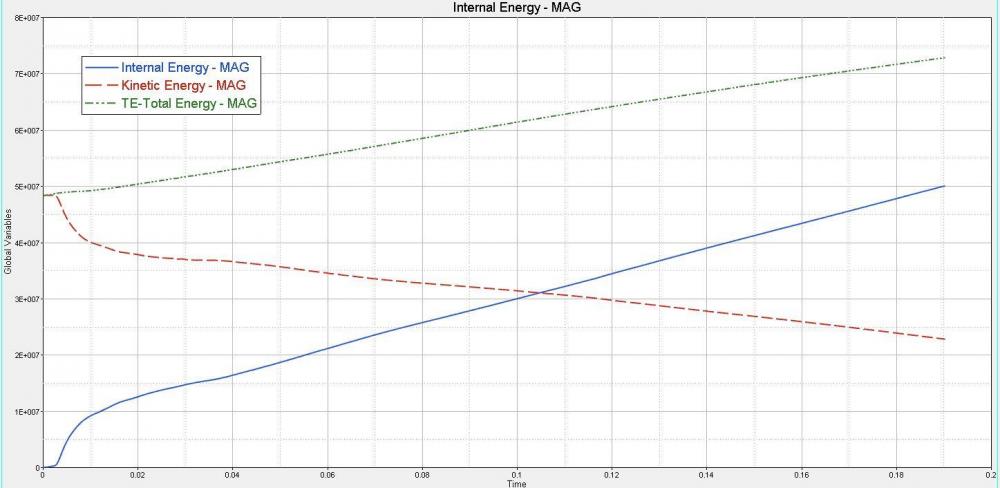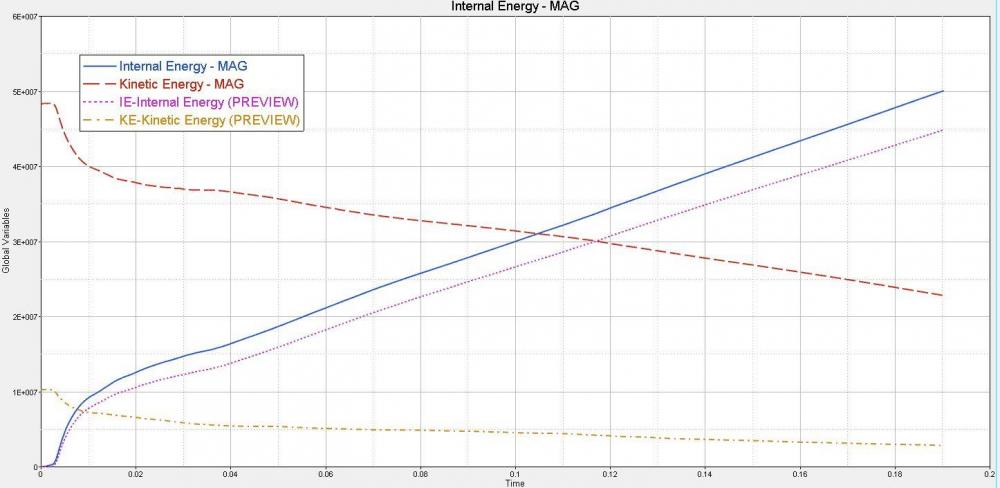I am conducting a rollover simulation.
After collision my energy is constantly rising
The loads in the model are gravity and initial angular velocity.
The tube material mostly used is contributing to the internal energy and overall total energy, Such that internal energy is exceeding total Energy
<?xml version="1.0" encoding="UTF-8"?>
the internal energy of material used for structure tube is most contributing to this .
The material Card used is MAT36 and Sliding with friction is used for ground.
Below is the graph for Kinetic energy and internal energy of tube material along with Global Kinetic and internal Energy
<?xml version="1.0" encoding="UTF-8"?>